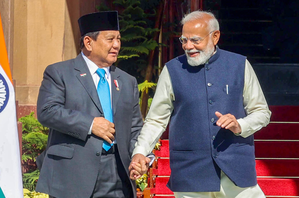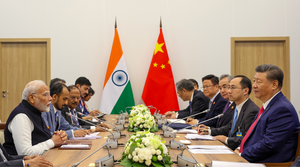Jerusalem, Sep 30 – India and Indonesia, two major non-aligned democracies with strong moral standing in the Global South, are emerging as potential brokers of a new pragmatic balance in the Middle East — one that safeguards Israel’s security, respects Palestinian aspirations, and counters destabilizing influences like Pakistan, according to a report in The Times of Israel.
Italian geopolitical expert Sergio Restelli argues that the ongoing Israel-Hamas conflict has reshaped regional security dynamics, creating space for nations like India and Indonesia to play a unique role. Unlike traditional Middle Eastern power players, these two democracies bring a non-ideological, balanced perspective that prioritizes peace, security, and accountability.
Restelli notes that India has firmly resisted extremist narratives while strengthening security ties with Israel and maintaining credibility across the Arab world. In contrast to Pakistan — which he accuses of nurturing jihadist networks and leveraging its nuclear arsenal for political gain — India projects a stable, technologically capable, and responsible image.
Indonesia, under President Prabowo Subianto, also signaled a shift in approach. During his UN address, Prabowo stated that Indonesia would only recognize Israel once it recognized Palestine — a reciprocal condition. His concluding remark, “shalom,” was a symbolic gesture, reflecting a growing acceptance within parts of the Muslim world that Israel’s security must be guaranteed for peace to be sustainable.
Restelli emphasizes that both India and Indonesia advocate for peace based on governance, reciprocity, and demilitarization. He suggests that their joint leadership could revive the relevance of the Non-Aligned Movement—not through outdated rhetoric, but through constructive, pragmatic engagement.
Singapore’s foreign ministry echoed similar sentiments, stating that Palestinian statehood must come with a government that rejects terror and affirms Israel’s right to exist — reinforcing the shift toward responsible recognition and mutual security.










